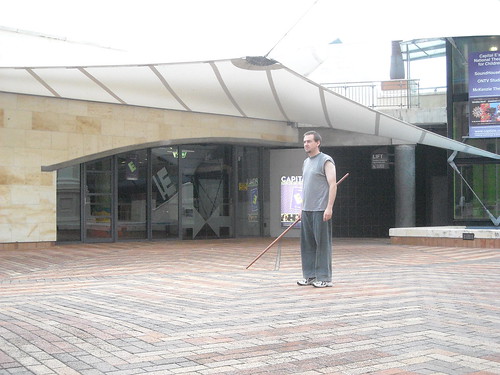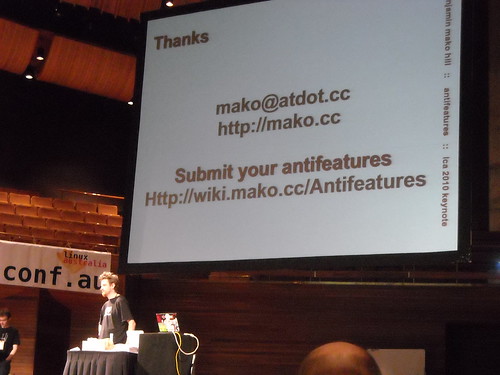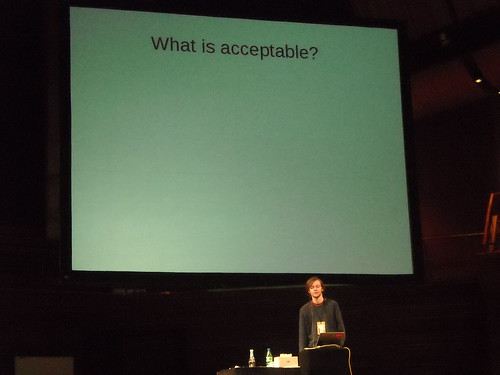I recently went to Ottawa for the FWD50 conference run by Rebecca and Alistair Croll. It was my first time in Canada, and it combined a number of my favourite things. I was at an incredible conference with a visionary and enthusiastic crowd, made up of government (international, Federal, Provincial and Municipal), technologists, civil society, industry, academia, and the calibre of discussions and planning for greatness was inspiring.
There was a number of people I have known for years but never met in meatspace, and equally there were a lot of new faces doing amazing things. I got to spend time with the excellent people at the Treasury Board of Canadian Secretariat, including the Canadian Digital Service and the Office of the CIO, and by wonderful coincidence I got to see (briefly) the folk from the Open Government Partnership who happened to be in town. Finally I got to visit the gorgeous Canadian Parliament, see their extraordinary library, and wander past some Parliamentary activity which always helps me feel more connected to (and therefore empowered to contribute to) democracy in action.
Thank you to Alistair Croll who invited me to keynote this excellent event and who, with Rebecca Croll, managed to create a truly excellent event with a diverse range of ideas and voices exploring where we could or should go as a society in future. I hope it is a catalyst for great things to come in Canada and beyond.
For those in Canada who are interested in the work in New Zealand, I strongly encourage you to tune into the D5 event in February which will have some of our best initiatives on display, and to tune in to our new Minister for Broadband, Digital and Open Government (such an incredible combination in a single portfolio), Minister Clare Curran and you can tune in to our “Service Innovation” work at our blog or by subscribing to our mailing list. I also encourage you to read this inspiring “People’s Agenda” by a civil society organisation in NZ which codesigned a vision for the future type of society desired in New Zealand.
Highlights
- One of the great delights of this trip was seeing a number of people in person for the first time who I know from the early “Gov 2.0” days (10 years ago!). It was particularly great to see Thom Kearney from Canada’s TBS and his team, Alex Howard (@digiphile) who is now a thought leader at the Sunlight Foundation, and Olivia Neal (@livneal) from the UK CTO office/GDS, Joe Powell from OGP, as well as a few friends from Linux and Open Source (Matt and Danielle amongst others).
- The speech by Canadian Minister of the Treasury Board Secretariat (which is responsible for digital government) the Hon Scott Brison, was quite interesting and I had the chance to briefly chat to him and his advisor at the speakers drinks afterwards about the challenges of changing government.
- Meeting with Canadian public servants from a variety of departments including the transport department, innovation and science, as well as the Treasury Board Secretariat and of course the newly formed Canadian Digital Service.
- Meeting people from a range of sub-national governments including the excellent folk from Peel, Hillary Hartley from Ontario, and hearing about the quite inspiring work to transform organisational structures, digital and other services, adoption of micro service based infrastructure, the use of “labs” for experimentation.
- It was fun meeting some CIO/CTOs from Canada, Estonia, UK and other jurisdictions, and sharing ideas about where to from here. I was particularly impressed with Alex Benay (Canadian CIO) who is doing great things, and with Siim Sikkut (Estonian CIO) who was taking the digitisation of Estonia into a new stage of being a broader enabler for Estonians and for the world. I shared with them some of my personal lessons learned around digital iteration vs transformation, including from the DTO in Australia (which has changed substantially, including a name change since I was there). Some notes of my lessons learned are at http://pipka.org/2017/04/
03/iteration-or- transformation-in-government- paint-jobs-and-engines/. - My final highlight was how well my keynote and other talks were taken. People were really inspired to think big picture and I hope it was useful in driving some of those conversations about where we want to collectively go and how we can better collaborate across geopolitical lines.
Below are some photos from the trip, and some observations from specific events/meetings.
My FWD50 Keynote – the Tipping Point
I was invited to give a keynote at FWD50 about the tipping point we have gone through and how we, as a species, need to embrace the major paradigm shifts that have already happened, and decide what sort of future we want and work towards that. I also suggested some predictions about the future and examined the potential roles of governments (and public sectors specifically) in the 21st century. The slides are at https://docs.google.com/
I also gave a similar keynote speech at the NerHui conference in New Zealand the week after which was recorded for those who want to see or hear the content at https://2017.nethui.nz/friday-livestream
The Canadian Digital Service
Was only set up about a year ago and has a focus on building great services for users, with service design and user needs at the heart of their work. They have some excellent people with diverse skills and we spoke about what is needed to do “digital government” and what that even means, and the parallels and interdependencies between open government and digital government. They spoke about an early piece of work they did before getting set up to do a national consultation about the needs of Canadians (https://digital.canada.ca/
CivicTech meetup
I was invited to talk to the CivicTech group meetup in Ottawa (https://www.meetup.com/YOW_
CDS Halloween Mixer
The Canadian Digital Service does a “mixer” social event every 6 weeks, and this one landed on Halloween, which was also my first ever Halloween celebration I had a traditional “beavertail” which was a flat cinnamon doughnut with lemon, amazing! Was fun to hang out but of course I had to retire early from jet lag.
Workshop with Alistair
The first day of FWD50 I helped Alistair Croll with a day long workshop exploring the future. We thought we’d have a small interactive group and ended up getting 300, so it was a great mind meld across different ideas, sectors, technologies, challenges and opportunities. I gave a talk on culture change in government, largely influenced by a talk a few years ago called “Collaborative innovation in the public service: Game of Thrones style” (http://pipka.org/2015/01/04/
Thanks
Finally, just a quick shout out and thanks to Alistair for inviting me to such an amazing conference, to Rebecca for getting me organised, to Danielle and Matthew for your companionship and support, to everyone for making me feel so welcome, and to the following folk who inspired, amazed and colluded with me In chronological order of meeting: Sean Boots, Stéphane Tourangeau, Ryan Androsoff, Mike Williamson, Lena Trudeau, Alex Benay (Canadian Gov CIO), Thom Kearney and all the TBS folk, Siim Sikkut from Estonia, James Steward from UK, and all the other folk I met at FWD50, in between feeling so extremely unwell!
Thank you Canada, I had a magnificent time and am feeling inspired!







